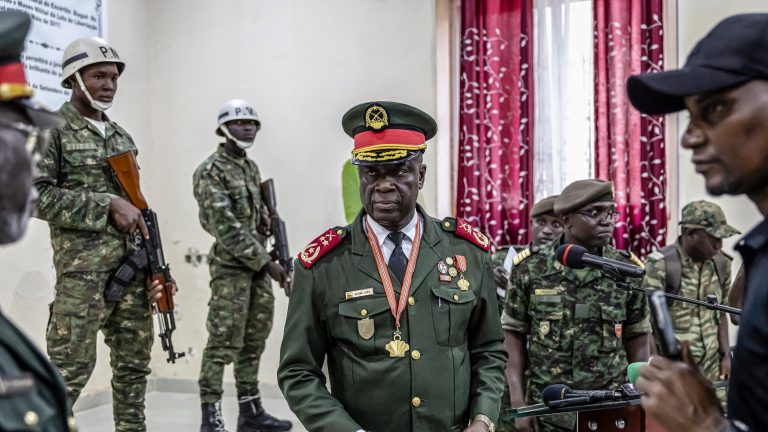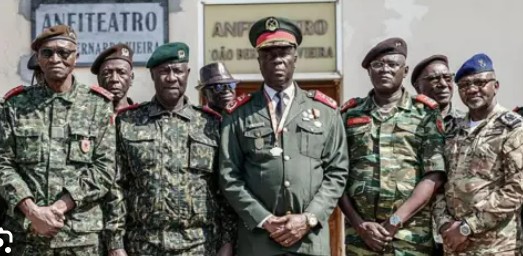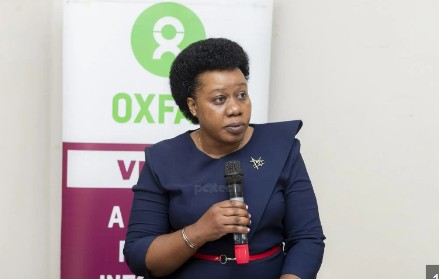Introduction
The West Africa Democracy Solidarity Network (WADEMOS), from January 24-28, 2023, embarked on a pre-election solidarity mission to Nigeria ahead of the forthcoming presidential/ national assembly elections scheduled for February 25, 2023 and the gubernatorial and state assembly elections set for March 11, 2023. The mission was in recognition of the shared democratic values by people across the ECOWAS sub-region and in acknowledgement of the unity among civil society and other civic actors across the West African sub-region in their common desire to see democracy upheld in Nigeria. It formed part of WADEMOS’ interventions aimed at promoting the integrity and credibility of elections to be conducted in West Africa in 2023 beginning with the upcoming elections in Nigeria. This election is particularly important for the entire sub-region as it sets the tone for subsequent elections in Sierra Leone (June 2023) and Liberia (October 2023).
The mission was informed by the following objectives:
- To solidarize with civil society, especially the WADEMOS Members in Nigeria, namely: Yiaga Africa, Center for Democracy and Development-West Africa (CDD-West Africa), Women In Politics Forum (WIPF Nigeria), and Transition Monitoring Group (TMG), around their planned activities for the 2023 Nigerian General Elections;
- To understand the general context within which the election is being held;
- To assess the level of preparedness of key electoral stakeholders as the elections approach;
- To offer recommendations to key stakeholders for redress on challenges identified.
- Delegation
The delegation comprised selected members of the West Africa Democracy Solidarity Network and was jointly led by Dr. Kojo Pumpuni Asante, Director, Advocacy and Policy Engagement, CDD-Ghana and Head of Secretariat, West Africa Election Observation Network (WAEON) and Bernadette French, Regional Coordinator, National Election Watch (NEW), Sierra Leone. Other members of the delegation included Kop’ep Dabugat, the Network Coordinator for WADEMOS; Ibar Sarr, Director General of Rencontre Africaine pour la Défense des Droits de l’Homme (RADDHO), Senegal; Dr. Bridget Osakwe, National Coordinator, WANEP-Nigeria, Mawusi Yaw Dumenu, the Coordinator for WAEON; Matthias Yeanay, Executive Director, Institute for Research and Democratic Development (IREDD); and Aissata Bocoum, General Secretary AFLED, Mali.
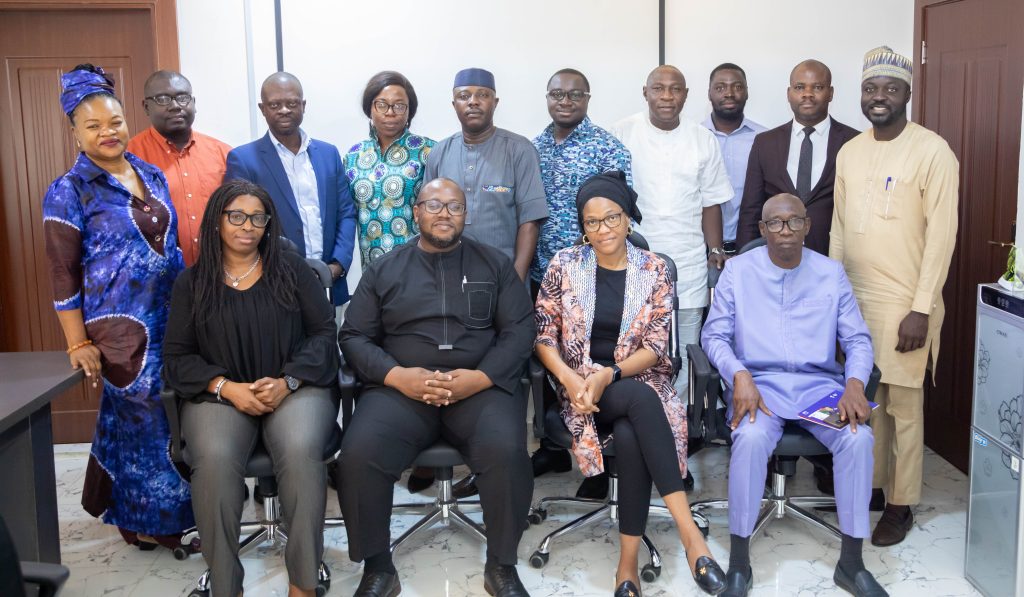
The delegation was joined by the national partners in Nigeria. These included Idayat Hassan, Director, CDD West Africa, Austin Aigbe, Senior Program Officer, CDD West Africa, Ibrahim Tijani, Transition Monitoring Group (TMG), Madam Ebere Ifendu, President, Women in Politics Forum (WIPF), and Ibrahim Faruk, Program Manager, Governance and Development, Yiaga Africa.
From the WADEMOS secretariat, the delegation included Paul Osei-Kuffour, the Anglophone Project Coordinator, Marie-Josiane Ngah, the Francophone Project Coordinator, David Asante-Darko, a Research Analyst and Jonah Eledi, Communications Specialist.
- Stakeholders Engaged
Following initial debriefing by CDD-West Africa on developments around the elections, the mission met with an array of stakeholders in Nigeria, including ECOWAS, the Independent National Electoral Commission (INEC), the Human Rights Commission, the National Peace Committee, the Inter-party Advisory Council (IPAC), Arise TV, the Federal Radio Corporation of Nigeria (FRCN) and a segment of media and CSO representatives. The mission was briefed by stakeholders on the political and electoral landscape and shared major concerns requiring attention to ensure a credible and peaceful election.
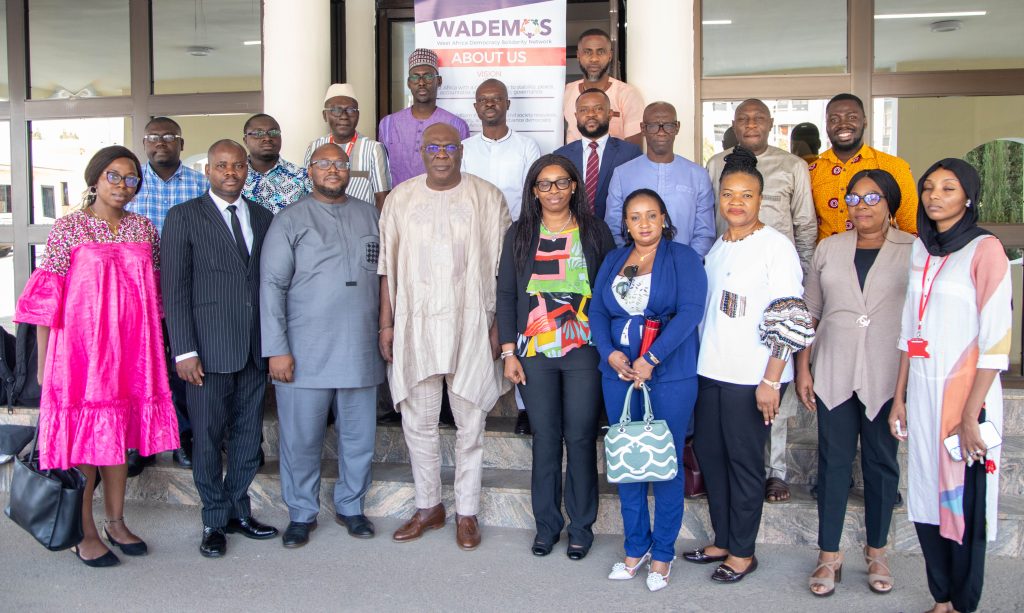
- Major Observations by the Mission
- The mission recognizes the importance of this election considering the strides that Nigeria has made in sustaining democracy over the last 24 years without any unconstitutional interruptions.To this extent, we commend the people of Nigeria in their quest to deepen democratic elections in the sub-region as reflected in the extensive reforms including the passage and assent of the Electoral Act 2022 and the subsequent legal deployment of the Bimodal Voter Accreditation System and the INEC Results Viewing Portal (IReV). These are two critical interventions that signal an improvement in the voting and results transmission and collation systems for the 2023 elections with implication for promoting transparency and trust in the electoral process. We further acknowledge efforts by INEC to improve access to polling stations by increasing the number of polling stations by 56,872, bringing the total number of polling units to 176,846. This is further supported by reforms aimed at improving the independence of INEC through the establishment of the Independent National Electoral Commission Fund to finance elections in the country.
- We received strong assurance from INEC on its preparedness towards the conduct of the election.
- A significant increase in public interest and enthusiasm in the election was observed with the large number of new voters that were registered in the mop up exercise, and this is encouraging particularly among young people. For the 2023 election, young people constitute an estimated 48 million of total 92.3 million registered voters. This is a huge voting community whose actions will help determine the credibility and peacefulness of the polls.
- The participation of civil society in supporting the electoral process at different stages is quite notable. We note particularly the role played by civil society in voter education, awareness creation, research and analysis, and peace promotion activities.
- We also observed the low participation of women as candidates contesting for positions in the election.
- Key Concerns and Challenges
Notwithstanding these observations and progress made in preparation for the election, the mission notes the following challenges that need to be addressed to ensure the credibility and integrity of the elections, with 29 days until Election Day.
- Major concerns were raised on the collection and issuance of PVCs. This includes concerns bordering on INEC’s failure to provide PVCs to registered voters who turn up at INEC offices, and on the other hand the inability of registered voters to go and collect their PVCs from designated card collection centers. The PVCs have implications on the voter turnout and legitimacy of the elections. The mission also notes the petition filed at the Federal court demanding INEC to recognise the use of Temporary Voter Cards for the 2023 election which could have severe consequences on the elections depending on the outcome of the ruling.
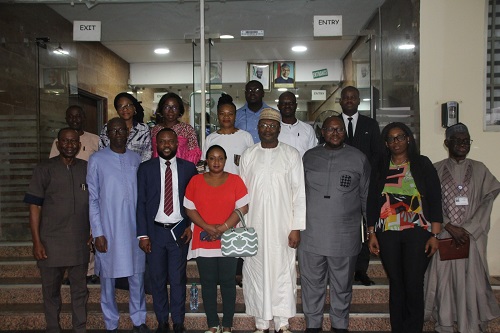
- Also, any large-scale malfunctioning of the BVAS on election day could cause anxiety and panic among voters and that INEC must endeavour to adhere to the contingency measures proposed to provide the necessary safeguards and assurance for citizens. CSOs were very optimistic about the deployment of the BVAS as the game changer for the 2023 elections as such all stakeholders must work collectively to ensure its successful deployment.
- Observations have been made about multiple security concerns that could significantly threaten the smooth conduct of the elections. These include the strong undertone of religious and ethnic tensions taking center-stage in the political discourse and debate among political parties and candidates alike. Also, the fact of sustained insecurity across the country as a result of increased incidences of kidnapping, banditry, insurgency, separatist groups creates a high level of uncertainty among the population.
- Another issue of concern is around the deployment of materials and logistics ahead of the election. This fear is exacerbated by the current long-running incidence of fuel scarcity in the country. We strongly note the postponement of previous elections in Nigeria, partly due to logistical concerns.
- As the Election Day draws nearer, some key issues in the media include incidences of cyber bullying, hate speech and misinformation.
- The Peace Accord that was brokered by the National Peace Committee (NPC) and endorsed by all political parties and presidential candidates have been blatantly violated by political actors who chose to use insults, hate speech and personality attacks on opponents instead of focusing on campaign issues.
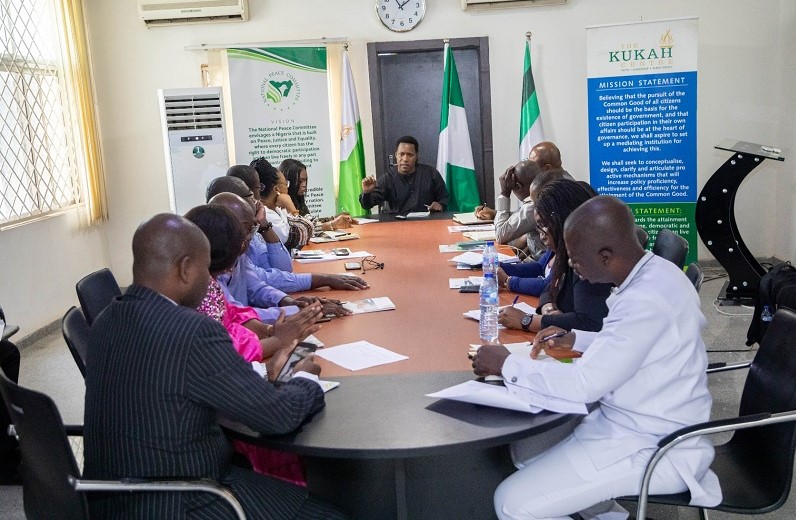
- A growing number of stakeholders called on INEC to provide clarity on Section 134 of the electoral law that stipulates that the winner of the presidential race, must attain a majority of votes and 25% of votes in at least two-thirds of states in Nigeria, and the Federal Capital Territory (FCT). It is feared that INEC’s failure to do so ahead of the election could result in disputes and possible violence in the event of a run-off.
- Recommendations
Independent National Electoral Commission
- INEC should provide clarity on the electoral law which stipulates that the winner of the presidential race must attain majority of total votes and 25% of votes in at least two-thirds of states in Nigeria, and the FCT. This is against the backdrop of multiple interpretations assigned to the law and expected competitiveness around the 2023 presidential race.
- Again, INEC must consider further expanding the deadline for distribution of PVCs and also expedite the disbursement of the cards to all registered voters to avoid disenfranchising voters due to the proposed “No Verification No Vote” requirement for the election. In the same vein, registered voters who have not yet collected their PVCs should endeavour to go and collect them at designated collection points before the deadline elapses.
- There must be conscious effort in ensuring that ad-hoc staff are adequately trained to minimize potential human errors particularly around the deployment of the BVAS on election day.
Security Forces:
- There should be commitment on the part of security agencies towards ensuring that known hotpots of violence and conflicts are prioritized for adequate security coverage and interventions ahead of the election and on Election Day.
- Also, the security agencies must be properly equipped and adequately resourced to provide security for the election.
- Respect and protect the rights of citizens especially media, voters, election staff and observers in general before, during and after the election.
Government
- Government must improve availability of fuel to mitigate the effect that the current shortages could have on the election. This has the tendency of increasing voter apathy and turnout particularly for voters who will travel long distances to their polling stations. Again, it has implication for the movement of security personnel and patrol teams that will be deployed to provide security for the election.
- Government must resist the temptation to abuse incumbency in its administration of the election and avoid election violence.
- Government should ensure increased participation of women in politics and governance through affirmative action policies and programs.
Political Leaders and Interest Groups
- Political leaders and parties must go about their political campaigns with a very high degree of responsibility towards ensuring that the sanctity and integrity of the electoral process is guaranteed. Political parties and their candidates must eschew violence and avoid all forms of incitement as tools for mobilizing and canvasing for votes among their supporters.
- As a multi-ethnic and multi-religious society, Nigerian religious and traditional leaders must use their platforms to spread peaceful messages of non-violence and good conduct required for peaceful and incident free election. Again, we urge them to support local interventions aimed at resolving potential violence to reduce and calm tension.
- CSOs should leverage on cooperation among themselves and with state institutions to champion participation and inclusion during the elections. They must continue to use their platforms to campaign for free, transparent and peaceful elections.
- The media must be on high alert to intercept and counter any instances of disinformation and misinformation particularly on the day of election and be apolitical and prone to the sensitivities surrounding this election in their reportage.
- Political parties should adhere to the peace accord and its commitments before, during and after the election.
- The media should popularize and demand accountability in the implementation of the peace accord.
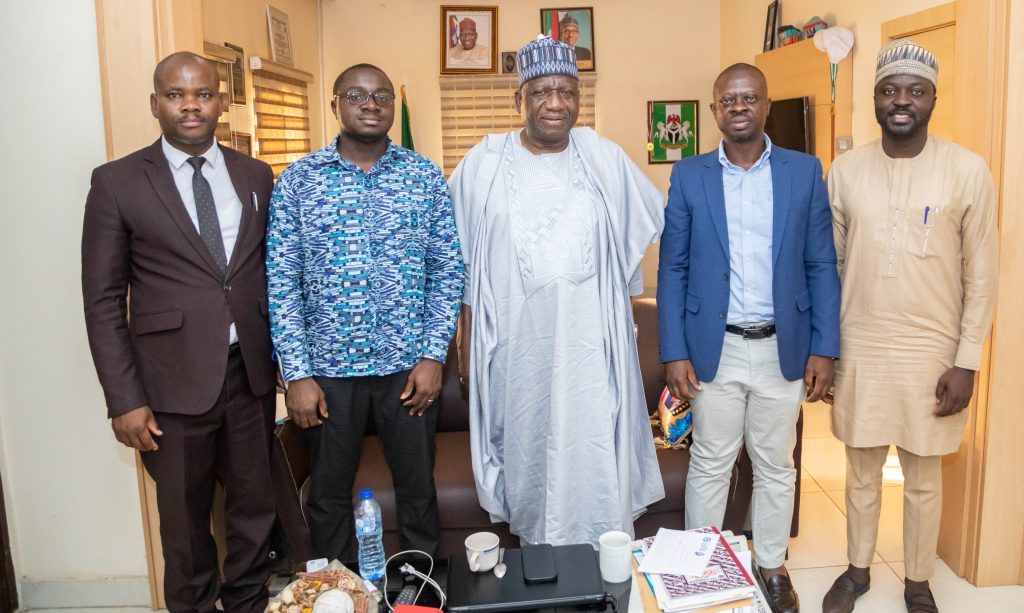
ECOWAS and International Community
- ECOWAS, the AU and the international community should continue to monitor proceedings in the lead-up to the elections and maintain their support for a free, credible and fair elections in Nigeria in line with relevant regional instruments guiding elections.
-END-
About WADEMOS Network
The West Africa Democracy Solidarity (“WADEMOS”) Network is a non-partisan, independent civil society-led transnational democracy solidarity network consisting of over thirty-five (35) civil society organizations located in 15 countries in West Africa. The purpose of the WADEMOS Network is to mobilize, coordinate, and leverage the collective power of civil society and other pro-democracy actors, resources, and opportunities within the West African Region to advance, defend, and reinvigorate democracy and promote democratic norms and reforms in the sub-region.
For more information, please contact:
Name: Jonah Eledi
Designation: Communications and Digital Platforms Officer
Email: j.eledi@wademosnetwork.org
Phone Number: +233 26 373 5330

